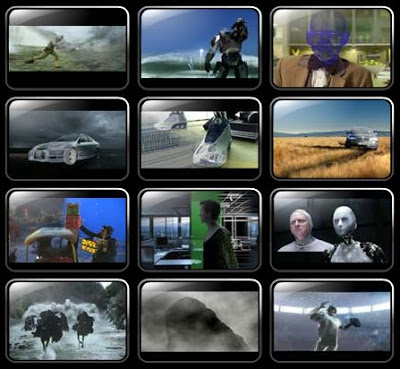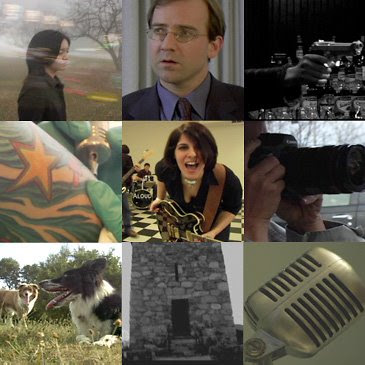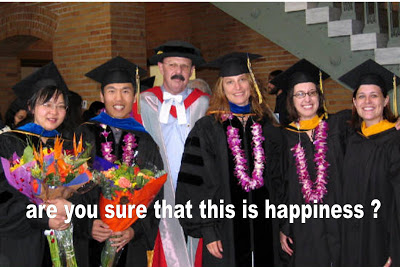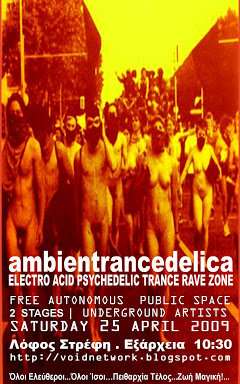

This an article about thousands of people trapped in the world of internet digital information, unable to understand the desperate and urgent need for action
The article is written by Michael Bugeja for the very interesting magazine The Ecologist
(you can subscribe to their mailing list and recieve news and essays!)
Global Village Idiots
Information about information, ideas without place, facts without action…
It’s time we got off the net, into the world and with the programme, says Michael Bugeja
For more than two centuries, ecology influenced how we viewed the world and ourselves in it. It helped create the culture of place, freeing natural science from the chains of religion, explaining the climatic role in the rise and fall of nations, and conceiving nature as ecosystem, from microbe to globe.
Philosophers have debated the culture of place versus ideas for generations. Political theorist Hannah Arendt believed the culture of place resulted in action, unlike the culture of ideas. In The Life of the Mind, published posthumously, she wrote that fanciful thinking inverts the natural order of things; people forget where they are and the people they’re with: ‘It is as though I had withdrawn into some never-never land, the land of invisibles’. Thinking annihilated space and time: ‘I can anticipate the future, think of it as though it were already present, and I can remember the past as though it had not disappeared.’
That passage, from 1978, presages the internet. Using technology, we withdraw from the real into the never-never land of e-fantasy. We may express our concern about climate change or biodiversity, but because we spend most of our day in front of monitors, we lack the time to do anything about it.
True, we may know more about ecological issues than ever before, thanks to new, mobile technology providing 24/7 access from almost anywhere on Earth, but without action, information is just one more digital commodity in the online databank of ideas.
Communication scholar Neil Postman articulated this in a 1990 speech to the German Infomatics Society, which anticipated a talk on the cultural contribution of the computer. To their surprise, Postman said all computers provide is more information faster in usable form.
‘If a hideous war should ensue between Iraq and the US,’ he asked, ‘will it happen because of a lack of information? If children die of starvation in Ethiopia, does it occur because of a lack of information? Does racism in South Africa exist [or] criminals roam the streets of New York City because of a lack of information?’
Postman told the audience of technology advocates, ‘they will give us artificial intelligence and tell us this is the way to self-knowledge. They will give us instantaneous global communication, and tell us this is the way to mutual understanding. They will give us Virtual Reality and tell us this is the answer to spiritual poverty. But that is only the way of the technician, the factmongerer, the information junkie and the technological idiot.’
In 2006, I wrote ‘Electric Cabaret’ for the Ecologist, noting that we had found the fabled global village, and it was peopled with idiots. Technology, I wrote, conveyed a singular message: ‘Someone, somewhere else, is more important than where I am and who I’m with’.
This augurs a devastating future for ecology. Technology has displaced us from our natural environment to such an extent that typically we advocate for or against it without our being in it. We create a second life of simulation to engage a distracted generation of learners who interact as avatars in virtual realms, rather than as people in real ones, and their teachers deal more often with the frustrating infrastructure of internet than with the structure of nature as ecosystem.
As a result, the culture of ideas no longer informs culture of place. Rather, the culture of ideas informs ideas that have no ecological impact other than generally wasting users’ time and distracting us from the ecological issues that matter.
I have researched this phenomenon since the publication of Nicholas Negroponte’s fl awed book Being Digital (Vintage, 1995), which established the culture of ideas as the primary purpose of innovating technology. In Interpersonal Divide (Oxford, 2005), I asserted that we were living not in the Information Age, but in the age of information about information, which Negroponte maintained had greater value than the information itself. In this he was right, but for the wrong reason. In a culture of place, information has social value because it can be applied to the environment. In a culture of ideas, information about information has commercial value as marketers devise ways to mete out access to the databank, search engine or digital device.
Technology gave us the global mall, which Negroponte persists, lost in the technostalgia of his One Laptop Per Child project, in believing disenfranchised children need access to. They don’t need internet; they need real nets to prevent malaria, as advocated by the Nothing But Nets project, whose slogan is ‘Send a net. Save a Life’.
In September, Negroponte’s laptop project was rescued by the icon of e-commence, Amazon, which announced it will provide one OLPC laptop for each purchased during the holiday season. Its slogan is ‘Give one. Get one’. Compare the two slogans. Nothing more clearly depicts the culture of place versus ideas, and the consumerism associated with the internet.
In his 2003 article, ‘Creating a Culture of Ideas’, Negroponte anticipated a ‘new economy’ of innovation and looked to universities to provide both, ‘because their other “product line”, besides research, is people’. Better still, he noted, universities had multiple means of support – grants, tuition and gift – and could take ‘far greater risks’ with less emphasis on results than in the business world. US universities would set the agenda, he wrote, and others ‘worldwide will have to follow’.
In the five years since that article, US universities have invested in technology to such an extent that access to education has become a far more serious concern than access to internet. Indeed, my research shows that technology corporatised academia rather than democratising it, inculcating in learners the rampant consumerism at the heart of just about all ecological issues on the planet.
The real world is summoning us to resolve crises in food, water and fuel, the lack of which cause famine, disease and war. It’s a defining moment for ecology, not only for us, but also for emerging generations, who require the commitment of place more than the empty innovations of ideas.
For more than two centuries, ecology influenced how we viewed the world and ourselves in it. It helped create the culture of place, freeing natural science from the chains of religion, explaining the climatic role in the rise and fall of nations, and conceiving nature as ecosystem, from microbe to globe.
Philosophers have debated the culture of place versus ideas for generations. Political theorist Hannah Arendt believed the culture of place resulted in action, unlike the culture of ideas. In The Life of the Mind, published posthumously, she wrote that fanciful thinking inverts the natural order of things; people forget where they are and the people they’re with: ‘It is as though I had withdrawn into some never-never land, the land of invisibles’. Thinking annihilated space and time: ‘I can anticipate the future, think of it as though it were already present, and I can remember the past as though it had not disappeared.’
That passage, from 1978, presages the internet. Using technology, we withdraw from the real into the never-never land of e-fantasy. We may express our concern about climate change or biodiversity, but because we spend most of our day in front of monitors, we lack the time to do anything about it.
True, we may know more about ecological issues than ever before, thanks to new, mobile technology providing 24/7 access from almost anywhere on Earth, but without action, information is just one more digital commodity in the online databank of ideas.
Communication scholar Neil Postman articulated this in a 1990 speech to the German Infomatics Society, which anticipated a talk on the cultural contribution of the computer. To their surprise, Postman said all computers provide is more information faster in usable form.
‘If a hideous war should ensue between Iraq and the US,’ he asked, ‘will it happen because of a lack of information? If children die of starvation in Ethiopia, does it occur because of a lack of information? Does racism in South Africa exist [or] criminals roam the streets of New York City because of a lack of information?’
Postman told the audience of technology advocates, ‘they will give us artificial intelligence and tell us this is the way to self-knowledge. They will give us instantaneous global communication, and tell us this is the way to mutual understanding. They will give us Virtual Reality and tell us this is the answer to spiritual poverty. But that is only the way of the technician, the factmongerer, the information junkie and the technological idiot.’
In 2006, I wrote ‘Electric Cabaret’ for the Ecologist, noting that we had found the fabled global village, and it was peopled with idiots. Technology, I wrote, conveyed a singular message: ‘Someone, somewhere else, is more important than where I am and who I’m with’.
This augurs a devastating future for ecology. Technology has displaced us from our natural environment to such an extent that typically we advocate for or against it without our being in it. We create a second life of simulation to engage a distracted generation of learners who interact as avatars in virtual realms, rather than as people in real ones, and their teachers deal more often with the frustrating infrastructure of internet than with the structure of nature as ecosystem.
As a result, the culture of ideas no longer informs culture of place. Rather, the culture of ideas informs ideas that have no ecological impact other than generally wasting users’ time and distracting us from the ecological issues that matter.
I have researched this phenomenon since the publication of Nicholas Negroponte’s fl awed book Being Digital (Vintage, 1995), which established the culture of ideas as the primary purpose of innovating technology. In Interpersonal Divide (Oxford, 2005), I asserted that we were living not in the Information Age, but in the age of information about information, which Negroponte maintained had greater value than the information itself. In this he was right, but for the wrong reason. In a culture of place, information has social value because it can be applied to the environment. In a culture of ideas, information about information has commercial value as marketers devise ways to mete out access to the databank, search engine or digital device.
Technology gave us the global mall, which Negroponte persists, lost in the technostalgia of his One Laptop Per Child project, in believing disenfranchised children need access to. They don’t need internet; they need real nets to prevent malaria, as advocated by the Nothing But Nets project, whose slogan is ‘Send a net. Save a Life’.
In September, Negroponte’s laptop project was rescued by the icon of e-commence, Amazon, which announced it will provide one OLPC laptop for each purchased during the holiday season. Its slogan is ‘Give one. Get one’. Compare the two slogans. Nothing more clearly depicts the culture of place versus ideas, and the consumerism associated with the internet.
In his 2003 article, ‘Creating a Culture of Ideas’, Negroponte anticipated a ‘new economy’ of innovation and looked to universities to provide both, ‘because their other “product line”, besides research, is people’. Better still, he noted, universities had multiple means of support – grants, tuition and gift – and could take ‘far greater risks’ with less emphasis on results than in the business world. US universities would set the agenda, he wrote, and others ‘worldwide will have to follow’.
In the five years since that article, US universities have invested in technology to such an extent that access to education has become a far more serious concern than access to internet. Indeed, my research shows that technology corporatised academia rather than democratising it, inculcating in learners the rampant consumerism at the heart of just about all ecological issues on the planet.
The real world is summoning us to resolve crises in food, water and fuel, the lack of which cause famine, disease and war. It’s a defining moment for ecology, not only for us, but also for emerging generations, who require the commitment of place more than the empty innovations of ideas.
Michael Bugeja is the director of the Greenlee School of Journalism, Iowa State University









